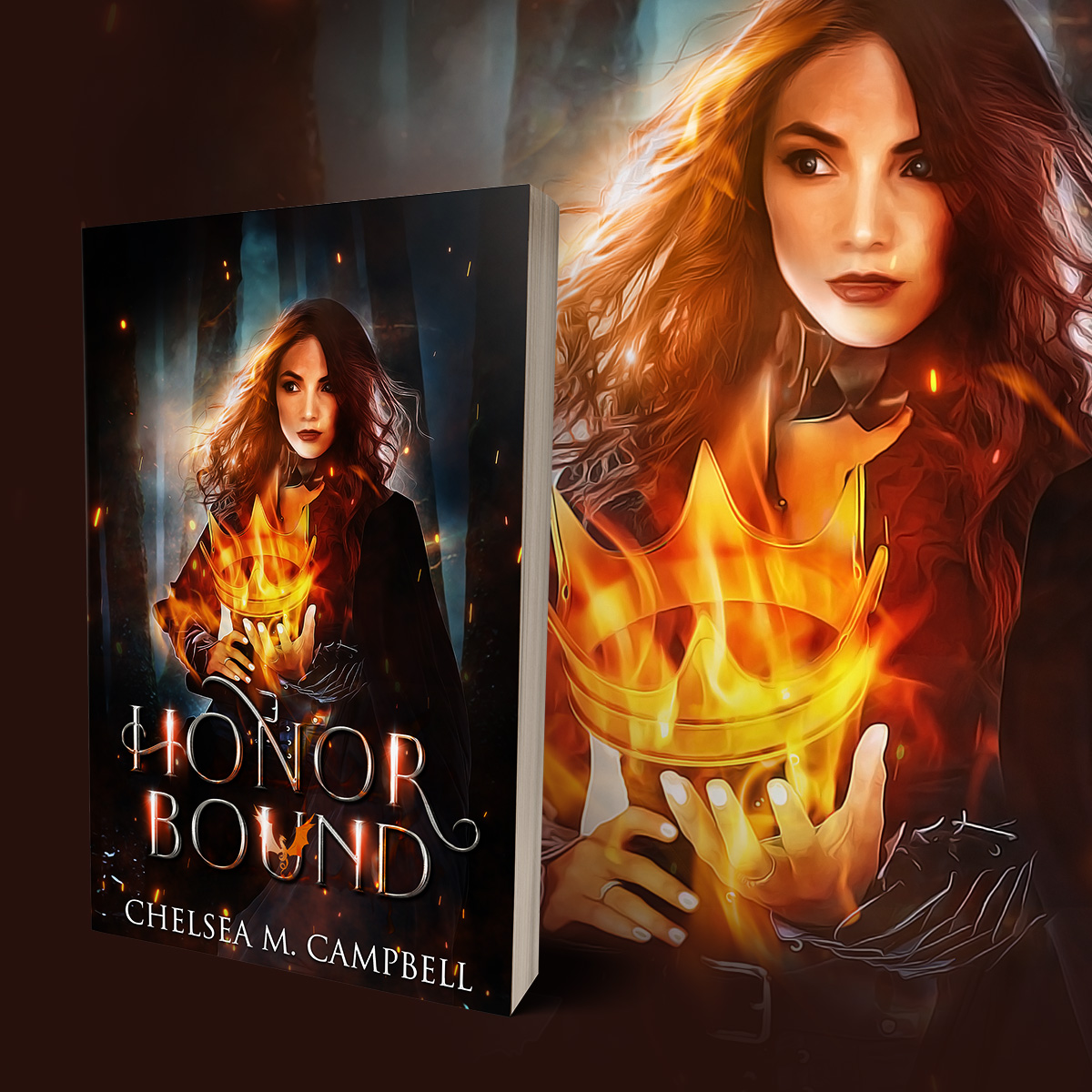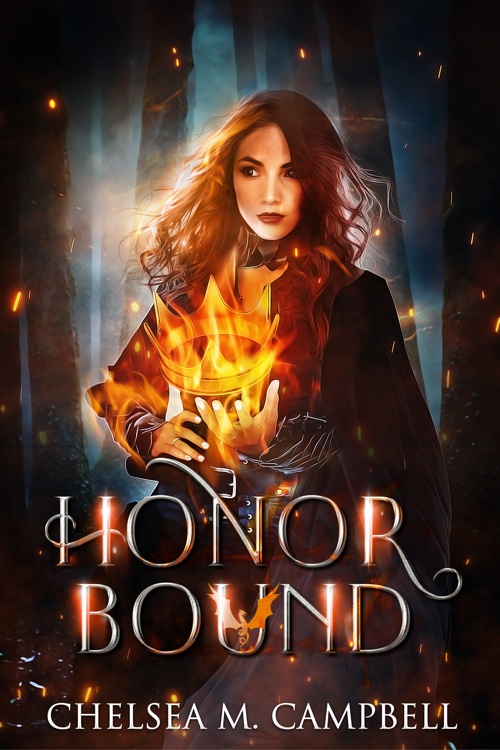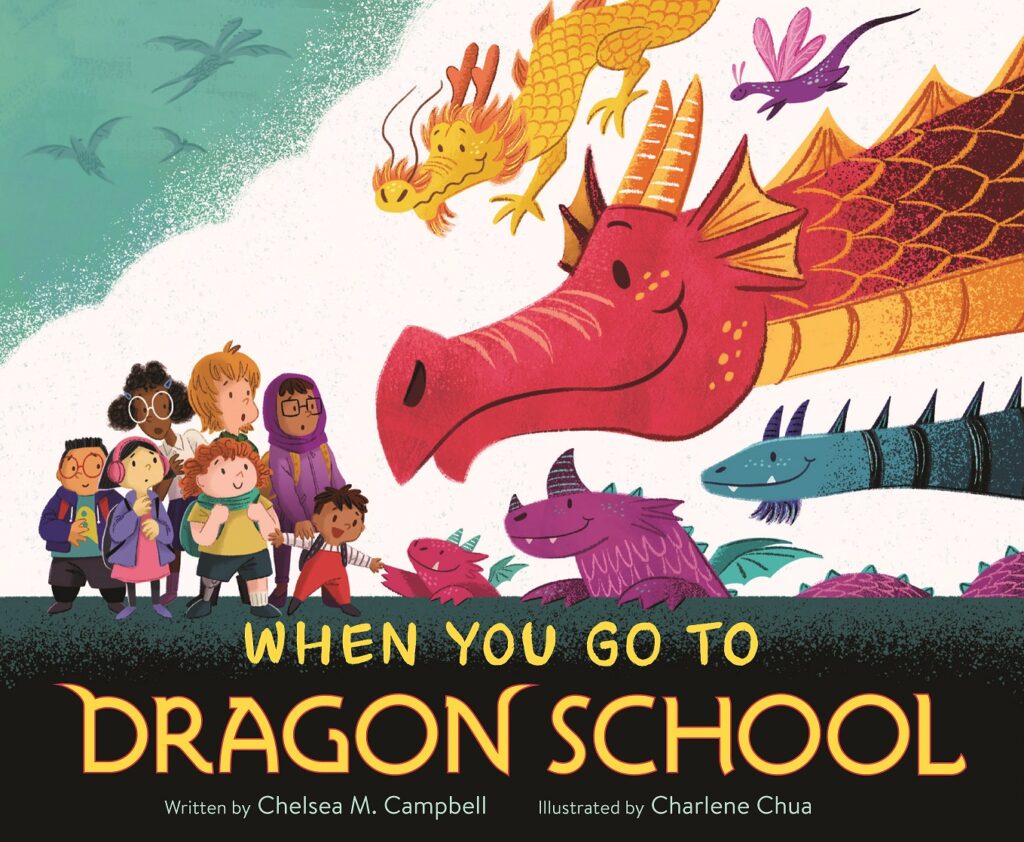Honorbound is out!
A forbidden proposal. A city in turmoil. A dangerous enemy that threatens everything. The excitement of Dragonbound continues! READ NOW!
Honorbound – Cover Reveal and Pre-Order
It’s here! I am so excited to show you the super gorgeous, amazingly shiny cover for Honorbound! I’ve seen it a bunch of times now, and every time I’m still like, “Whoa.” This cover was created by the uber talented Fiona Jayde of fionajaydemedia.com. If you’re an author looking for an artist, I wholeheartedly recommend her! She was great to work with, her prices are more than reasonable, and her artwork is crazy awesome!
Anyway, not only does it have a cover, but Honorbound is available for pre-order! I listed the release date as May 29th to give myself plenty of wiggle room, but the book is close to being done and I plan to have it out by the end of April, sooner if possible. It will be part of Kindle Unlimited, and there will be a paperback release to follow. I am really hoping to also do an audiobook version, but I haven’t talked to the narrator yet, so I don’t want to get anyone’s hopes up (including my own). Plus, as you all know, I am woefully behind on the Renegade X audiobooks, so this one will have to go to the end of the queue. (And yes, those audiobooks are still happening.)
Honorbound, Take Two
For those of you waiting for the Dragonbound sequel, here’s an updated (read: completely new) blurb:
When Amelrik proposes, Virginia couldn’t be happier, even though she knows the king of Hawthorne clan will never allow his only son to marry a St. George. But the situation turns out to be even worse when Cedric, the appointed heir, refuses to come home and marry for a political alliance. If Cedric doesn’t show, the king’s going to make Amelrik take his place, meaning Virginia will lose him forever.
Determined not to have their lives decided for them, Virginia and Amelrik set out to find Cedric and convince him to come home. But when a group of paladins takes over the city Cedric’s been living in, on the grounds that there have been recent dragon attacks, they put the town on lockdown. No one’s getting in or out, dragon or human. Sooner or later, any dragons stuck inside the town will have to transform and reveal themselves, and Virginia, Amelrik, and Cedric find themselves trapped.
Things only get worse when Virginia’s dragon-hunter sister, Celeste, shows up to aid the paladins. And as the dragon attacks increase, so does the town’s paranoia. Time is running out, and soon Virginia and Amelrik are fighting just for survival. If they can’t figure out what’s really going on, and soon, it won’t just be their love that’s in danger—it’ll be their lives.
COVER COMING SOON!!! Add it on Goodreads!
Someday It Will Happen for You
Yesterday was the 10th anniversary of when I got the offer for Renegade X! I can’t believe it’s been 10 years, or all the crazy stuff that’s happened in between. Nothing’s gone how I thought it would, lol.
I believed the book was going to be a huge success and that I’d always be under contract and have a great career as a traditionally published author (except I didn’t think the “traditionally” part because indie wasn’t a thing then). Ha! Didn’t happen.
Years later, after it had gone out of print and I re-published it, along with the sequel, I believed I’d only sell a few copies. My grand hope was to sell 20 copies of book 2 a month. That also didn’t happen, but in a good way, because sales WAY exceeded that.
Both these stories make me laugh now.
And I remember before I was published how BADLY I wanted it and how sometimes–most of the time–it felt like I would never get there. And now that seems ridiculous.
I also remember the years when it felt like my career was over before it had really even started and how it felt like nothing was ever going to change. And now that feels ridiculous, too.
And in a few more years, I’ll probably look back at all the things I’m worrying about and struggling with right now and think lol, what was I worried about? Of course it all worked out!
But if someone had told me back in the day not to worry about getting published, that of course I was going to get there, of course I was going to be good enough and get noticed enough someday… I don’t think I could have gotten past my anxiety enough to listen. I would have thought that published authors always say that, because it’s easy for them, now that they’re not struggling. (Lol.) Maybe that’s true, and maybe that worry is important, to some extent.
But to all the aspiring writers out there, I’d like to say this: someday it will happen for you. Someday you’ll get that contract or that bump in sales that snowballs and changes everything.
And someday something else will go wrong, and you’ll think you screwed up your one chance at success, and it’s over.
But it’s not.
Inktober – 9 and 10
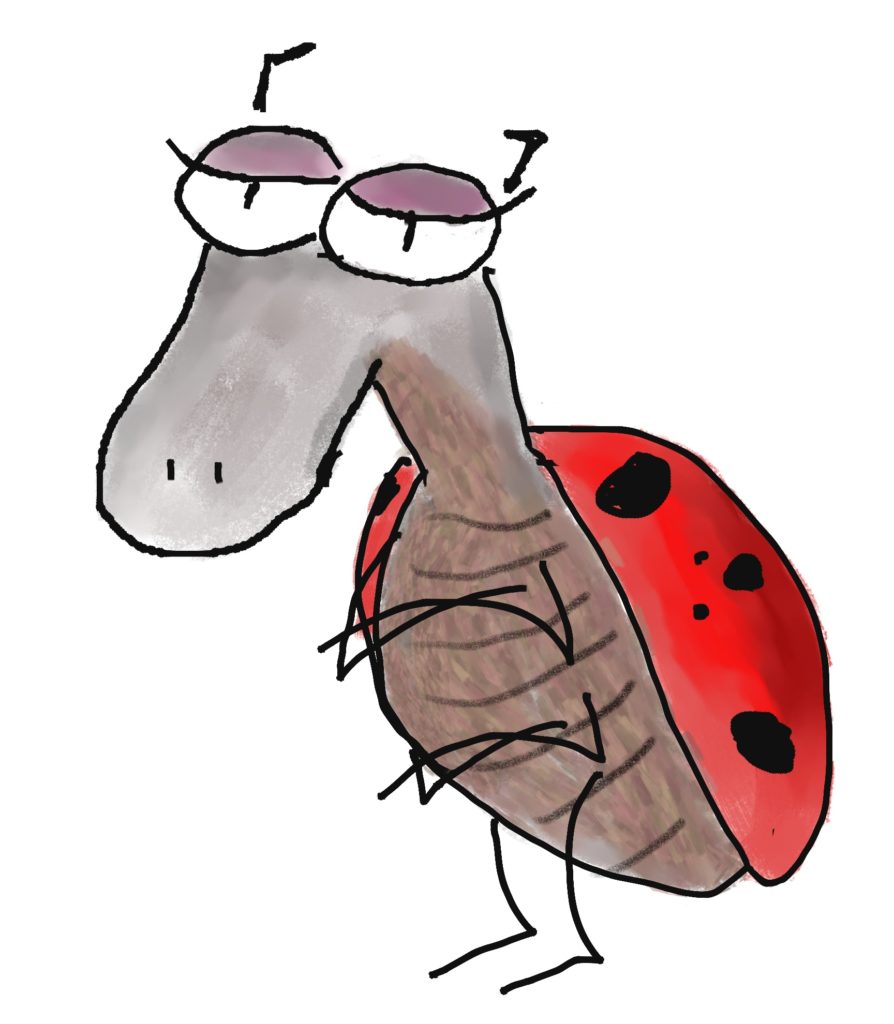
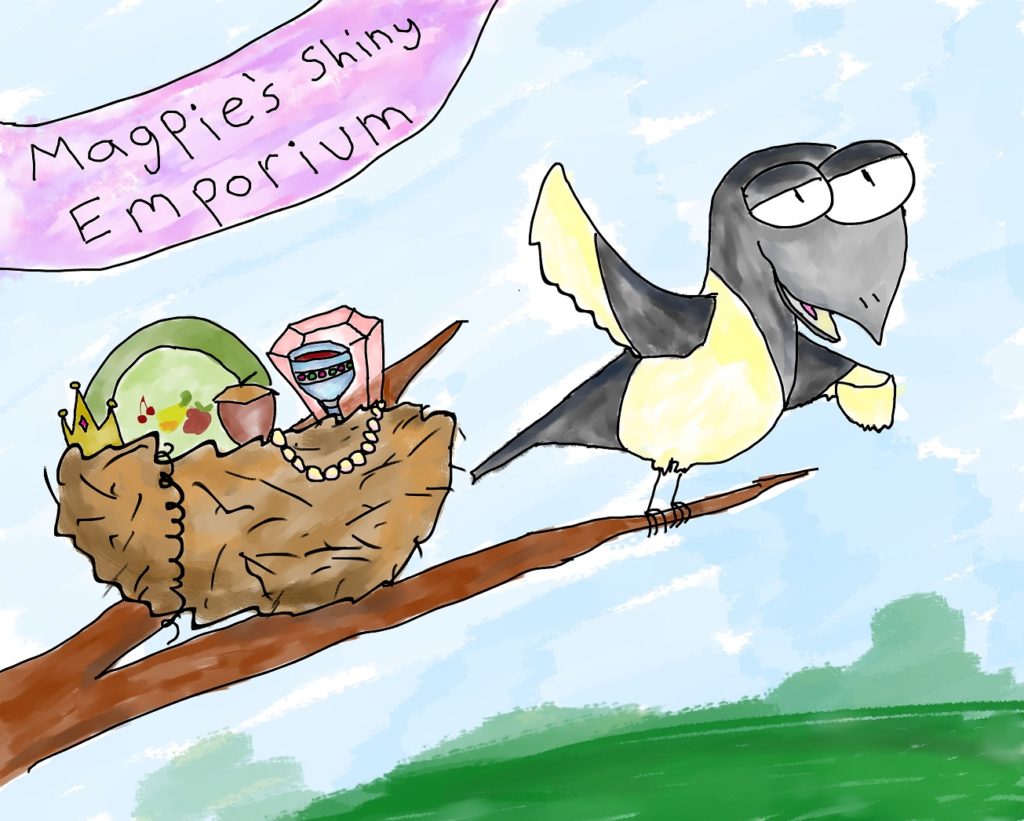
Inktober – #1 – 8
I’ve been participating in Inktober this year, where basically the goal is to draw every day in October. These were all done on the computer, with a tablet, in Krita, which is free, open-source software for artists that I highly recommend! I’ve tried to draw in Photoshop before, and I kind of hate it, and I’m really terrible at coloring things in it. I mean, let’s be honest, coloring has never been one of my strong points, but I feel like that’s changing with Krita. Because it turns out coloring things is a lot easier when you have limitless colors and, like, a bazillion different tools to use them with. As opposed to, say, an old box of crayons or colored pencils. Not that I’m still using crayons or anything, and I do have a box of not-that-old Prismacolor pencils, but it’s the smallest box and I don’t know how to blend anything.
Anyone else doing Inktober? Leave me a comment and a link to your gallery!
Self-publishing vs. Traditional Publishing
Unless you’re a mega bestseller, it’s really hard to make a living through writing in traditional publishing. Self-publishing makes it much easier for the average author (or “midlister”) to earn a real income. Self-publishing also pays monthly (with an initial two-month delay after publication), and you can see all of your sales numbers. In traditional publishing, on the other hand, you have no idea when you’ll get paid. When a publisher buys your book, they give you an advance on royalties (and these numbers range wildly–could be $5,000, could be $500,000, theoretically depending on how many copies they think they can sell in the first year, but honestly it feels pretty random, and different publishers will make completely different offers on the same books).
How many reviews you have–especially positive reviews, meaning four and five stars–also influences how the algorithms promote your book. One thing that The Rise of Renegade X had going for it when I republished it is it counted as a new release, since it had a new publisher, but it kept the reviews it had accumulated from its original publication. Meaning that the algorithms saw it as a “new book” that had a bunch of positive reviews from day one. That’s just my speculation, though, so take it with a grain of salt. Book 2 also did pretty well, and it didn’t start with any advantages, other than being the next book in the series. It also helped that I ended up releasing them at almost the same time, meaning they both ended up in Amazon’s Hot New Releases, and readers who enjoyed book 1 could just pick up book 2 and keep reading.
The Still Behind on Everything Post
I was looking at some earlier posts, and apparently back in September I thought I was going to write ALL THE BOOKS this winter. I mean, I knew that was unrealistic, so I said I’d probably not have the next Renegade X book done until the end of this year. But what actually happened was I felt super burnt out on writing novels, after working crazy hard to get Phobia and Torment done, so I just didn’t.
Actually, I wrote a radio play. I knew audiobooks were a thing, but I only discovered audio dramas about a year and a half ago (thank you, Home Front), and it turns out I freaking love audio dramas.
I’m also working on a visual novel (it’s like Choose Your Own Adventure, but with pictures, if you’ve never played one). It’s pretty hilarious, if I do say so myself. (Which I do. Obviously.)
And another Dragonbound book and the next Renegade X book are in the works, plus something new I’ve been playing with.
I always thought I’d be the kind of author who could just do whatever was needed at any given time, but it turns out I’m not. Not being able to wrangle myself makes me feel like a bad writer, so I try not to think about it, because it’s not how I pictured myself when I dreamed of doing this as a career. But creativity is often hard to wrangle! (And adding health issues and energy problems into the mix just complicates things.) And the more I think about it, the more I think it probably doesn’t mean anything bad about my abilities as a writer. But it does mean that I don’t always work on the intended projects at the intended times, despite the fact that it feels like every other writer in the world is getting everything done when they say they will no matter what. (Even though I know they’re not. Well, maybe some of them are, but not all of them. Probably.)
So, yes, delays all around. Including a delay on the next audiobook, which I thought would also be out by now, though that one is for a completely different reason. Everyone involved is ready to go, but I have to wait for contracts (read: payment) from another project (one that will make Renegade X fans very happy, though I can’t reveal it yet), and I really thought they’d be done months ago, but they’re taking forever. But once all that gets sorted out, production will begin on the audiobook for book three. And once production begins, it really shouldn’t take very long for everything to get done and for it to come out.
I’ve also got some writing- and publishing-related posts coming up soon, too. People sometimes email me vague writing or publishing questions, and then I write them back with overwhelming emails containing everything I know on the subject. So I thought I’d comb through my emails and actually make some posts.
Soon, Preciousss
Since I’ve had several people ask recently, here’s a quick update on if/when The Betrayal of Renegade X will be an audiobook.
The answer to “if” is YES.
The answer to “when” is VERY SOON. I can’t give any specific dates yet, but production should start in a few weeks or so. At the moment, I anticipate a June release, but, again, I can’t be sure on the specifics yet, so keep in mind that that’s a tentative date. I will post updates once I know more.
All of Renegade X on Sale Today
All the Renegade X books are on sale today–books 1-3 are $1.99 each and book 4 is $2.99, and both the novellas are FREE! A few other books in my backlist are on sale as well.
Check out all my books here.
Get the free novellas: The Haunting of Renegade X and The Torment of Renegade X.

